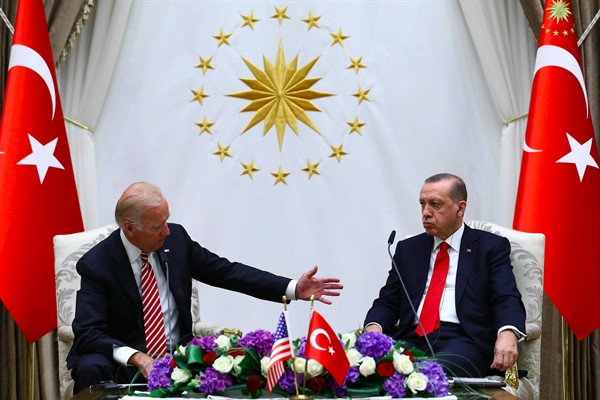As President-elect Joe Biden prepares to take office later this month, many U.S. allies and partners are eyeing an opportunity for better relations with Washington. But Turkey, under the leadership of President Recep Tayyip Erdogan, will face an uphill battle to settle its ongoing disputes with the United States, not to mention its other NATO allies.
There are three major impediments to a reset in Turkey’s ties with the West. First, the U.S. remains at loggerheads with Turkey over Erdogan’s decision to purchase an advanced missile defense system from Russia. Second, the European Union is considering tough sanctions against Ankara over its drilling activities in the Eastern Mediterranean, in waters that are also claimed by Greece and Cyprus. And third, even independent of those external pressures, Erdogan’s government will likely continue to undermine the U.S. and the EU as part of his domestic campaign to keep Turkish voters on his side by galvanizing nationalist sentiments.
Earlier this month, the Trump administration imposed narrowly targeted but nonetheless stinging sanctions against Turkey in response to its acquisition of the Russian-manufactured S-400 missile defense system in 2019. The sanctions, which targeted Turkey’s defense industry, were required by the 2017 Countering American Adversaries Through Sanctions Act, known as CAATSA. Congress, angered by the delay, included a provision requiring the sanctions be imposed within 30 days in the annual defense bill that it overwhelmingly passed last month.

